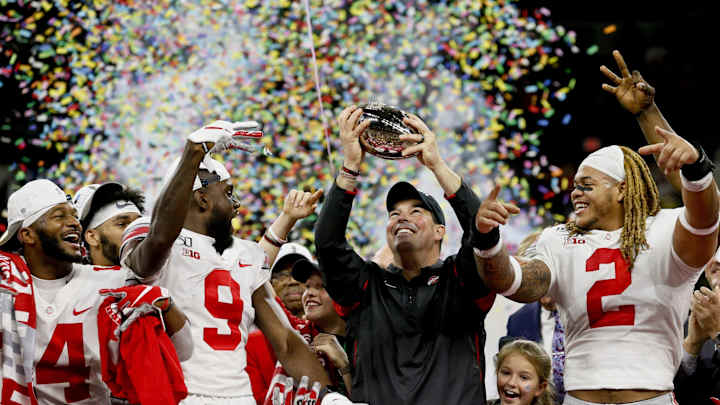A Jersey Guy: Bowl Season needs trimming--now

Right now, they are still on the books, a schedule of 27 bowl games which will be fed to you in December whether you want them or not.
It doesn't matter if the country is going on a virtual COVID-19 lock down with nothing but grim predictions until a vaccine is finally produced and distributed.
It doesn't matter if simply finishing the regular season, when actual championships are at stake, with long-standing rivalries being continued under the harshest conditions with significant restrictions.
It doesn't matter that because of COVID-19, the college football regular season, conference championship portion will be extended until Dec. 19th this year.
No, ESPN, the self-proclaimed |"world wide leader'' has made the corporate decision that college football bowl games with no real competitive meaning, matching teams who may not even have won half their games, will play bowl games in empty or near empty stadiums in such exotic locales as Frisco Texas, Boise Idaho, and Shreveport, La.
Why?
Because ESPN needs to fill holiday programming on its assortment of outlet channels.
Right now, the world of college football is staggering to the finish (presumably near Dec. 19th) when the SEC, ACC, Big Ten, Pac-12 and Big 12 will decide their conference champions and the CFP selection committee will select the teams that will play in the New Year's Six Bowl bonanza created by the College Football Playoff system.
ESPN will be a big part of that picture. That's fine.
But the other side isn't as glamorous.
Here's the issue. Once Dec. 19 arrives, ESPN programming needs college football to fill in Christmas week and New Year's Eve gaps.
Starting on the 19th, 27 bowl games are scheduled to be played over the next 12 days. Twenty-six of them will be televised by ESPN, which owns more than half of the actual games.
It gets really hectic from Dec. 24t through the 26th, when ESPN will televise 8 bowl games.
The coverage again spikes on Dec. 30th and Dec. 31st when ESPN will televise 9 bowl games, including a marathon slate of 5 games on New Year's Eve.
The argument that ESPN uses and that many college football fans use is that a college football game televised at |ANYTIME during the holiday week is better programming than reruns, soap operas, or this year, more COVID-19 or political bombast.
ESPN officials have also said that any television rating at any time is a money maker, especially in an era when even at ESPN much of the coverage is "virtual'' in nature.
Production costs are way down.
That concept has some credence in normal times.
Not now.
Not when traveling to a convenience store is an adventure for many people who are being told where they CAN'T go and what they CAN'T do.
But since ESPN wants ratings, it will tell schools and players and coaches to pack up travel several hundreds of miles to play a game which means something in places which are not "go to'' destinations in December.--how's the weather in Boise three days before Christmas?.
The costs will outweigh the revenues in most instances and do ANY of these teams after a season which began in June for many of the player need to play a meaningless game in a dreary place to placate some suits at Disney corporate headquarters obsessed with bottom line numbers.
Asking ESPN for any compassion is useless. This is the network which will chop quality people and journalists off its pay roll, not because they are doing a poor job, but because they make too much money.
If the COVID-19 cases continue to spike ESPN will be faced with an inventory problem if teams simply do not have enough healthy players to participate--and we could see wide-scale bowl cancellations.
It shouldn't come to that.
College football officials, who seldom agree on anything, should call these games off now.
Let college football keep the New Year's Day Six and the CFB semifinals and championship game.
Those bring in money and are rewards for the season.
Any of the other bowls, however, need to end the charade ASAP.--and be cancelled.
